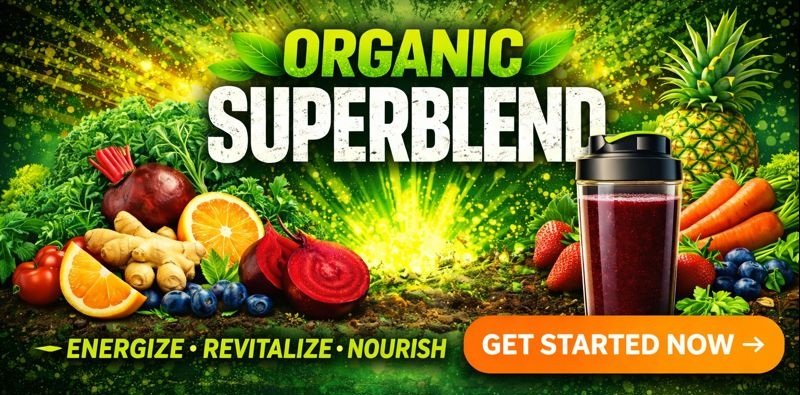Why Whole Food Supplements Are Better Than Multivitamins
TL;DR: Whole food supplements offer nutrients in their natural form, leading to better absorption, fewer side effects, and real health benefits compared to synthetic multivitamins.
What Are Whole Food Supplements?
Whole food supplements are made by concentrating actual fruits, vegetables, herbs, and superfoods into powder or capsule form. They contain the full nutritional profile of the foods they’re derived from — including vitamins, minerals, antioxidants, enzymes, and phytonutrients. These nutrients are delivered in their natural form, as your body evolved to absorb them.
Unlike synthetic supplements, which isolate individual vitamins in a lab, whole food supplements preserve the complex matrix of nutrients found in nature. This means your body gets the co-factors it needs to properly digest and use the nutrients.
Why Are Whole Food Supplements Superior?
1. Better Bioavailability
Your body is designed to recognize and absorb nutrients from food — not synthetic chemicals. Whole food supplements mimic nature, allowing for faster, more complete absorption of nutrients without stressing your digestive system.
2. Natural Synergy of Nutrients
In real foods, nutrients don’t exist in isolation. Vitamin C comes with flavonoids. Magnesium works with B6. Whole food supplements retain these synergistic relationships, enhancing the effectiveness of each nutrient.
3. Fewer Side Effects
Ever feel nauseous after taking a multivitamin? That’s because synthetic supplements can overwhelm your body, especially on an empty stomach. Whole food supplements are gentler, reducing the risk of upset stomach, headaches, or toxicity from mega-doses.
4. Clean Ingredients, No Fillers
The best whole food supplements are free from artificial colors, preservatives, and binders. You get exactly what you need — nothing more, nothing less.
How to Identify a Quality Whole Food Supplement
- Check the ingredients — do they list real foods like kale, spirulina, or blueberry?
- Is it organic and non-GMO?
- Does it avoid synthetic isolates (like folic acid or vitamin E acetate)?
- Are there third-party purity or potency tests?
Who Should Consider Whole Food Supplements?
Everyone can benefit — but especially those who:
- Eat a highly processed diet
- Struggle to get enough fruits and vegetables
- Experience low energy, brain fog, or poor digestion
- Prefer a natural, holistic approach to wellness
Final Thoughts: Real Nutrition, Real Results
Synthetic multivitamins may promise quick fixes, but your body craves real food. Whole food supplements provide a clean, effective way to nourish your body with the nutrients it actually recognizes.
If you’re ready to experience the difference of truly natural nutrition, visit MyOrganicNutrition.com and explore our best-selling whole food superfood blends.
